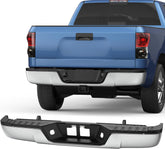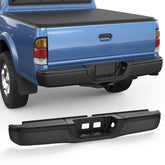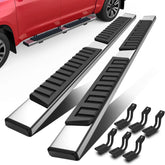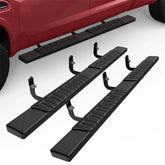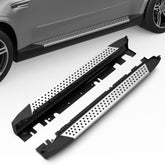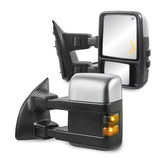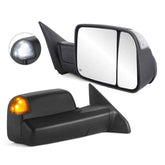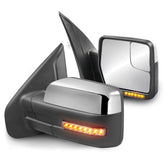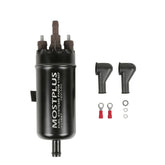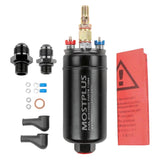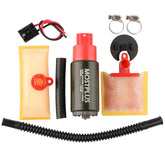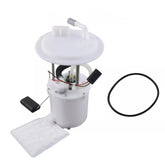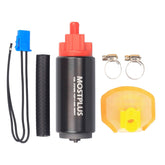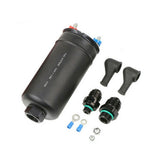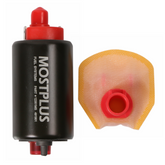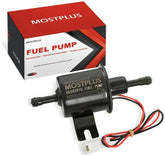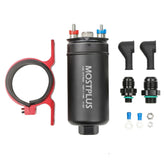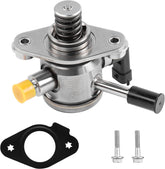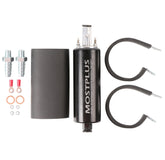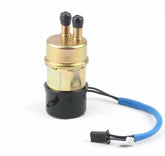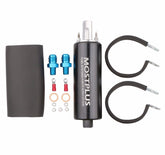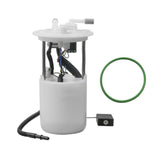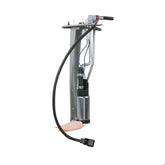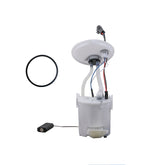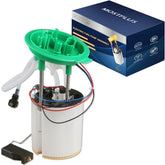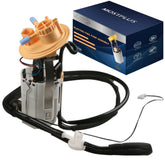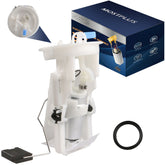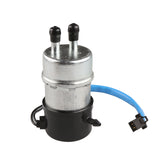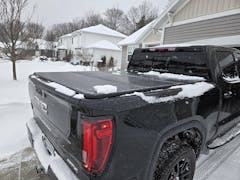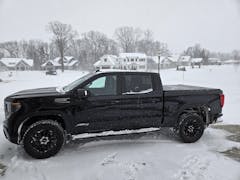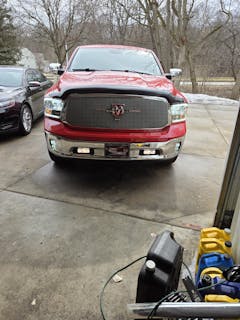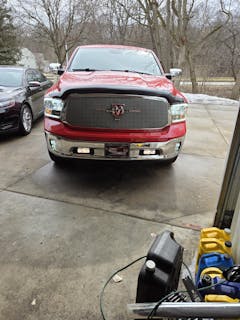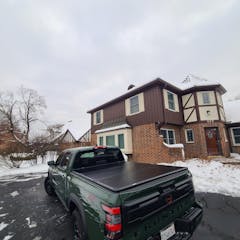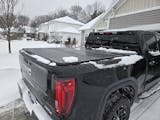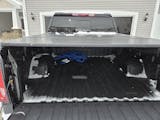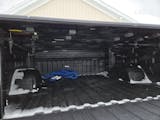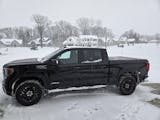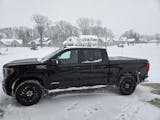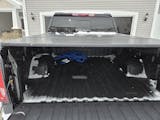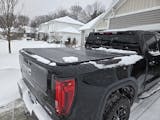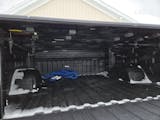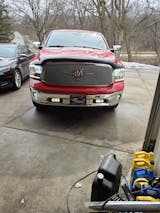Filter
101 results
20
- 10
- 15
- 20
- 25
- 30
- 50
Best selling
- Featured
- Best selling
- Alphabetically, A-Z
- Alphabetically, Z-A
- Price, low to high
- Price, high to low
- Date, old to new
- Date, new to old
Sort
Sort by:
- Featured
- Best selling
- Alphabetically, A-Z
- Alphabetically, Z-A
- Price, low to high
- Price, high to low
- Date, old to new
- Date, new to old
-
MOSTPLUS Inline High Pressure Fuel Pump Universal Replacement 0580464070Vendor: MOSTPLUSFeatures Inline High Pressure Fuel Pump Universal external in line fuel pump. Does not need to be mounted inside the tank. Use this pump for turbo/non turbo gas fuel injection systems up to 250bhp. Interchange Part Number: 0580453911 0580463017 0580464023 0580463010 0580464008 05804640320580463011 0580464013 0580464033...
- $29.75
- $29.75
- Unit price
- / per
-
MOSTPLUS 300LPH Universal External Inline Fuel Pump Replaces 0580254044Vendor: MOSTPLUSThese brand new and high performance pumps deliver flow about 300lph at 12v and 45psi matching maximum 750hp naturally aspirated engines and 650hp turbo/Supercharged ones separately.The Flow rate is same to 044 pumps.It's used widely in many different types of motorsport; World Rally Cars,...
- $41.99
- $41.99
- Unit price
- / per
-
New In-Tank Fuel Pump For 2001-2006 Honda CBR600 CBR 600RR CBR600F4i CBR600RRVendor: MOSTPLUSSince 2001, we have started to manufacture the fuel pump for the aftermarket. These fuel pumps are all made up of first-class material in order to strengthen the durability and extend the usage life. Some competitors' pumps use cheap material inside leading unstability and...
- $29.99
- $29.99
- Unit price
- / per
-
Fuel Pump Module Assembly E8575M For 2003-2008 Jaguar X-type V6-3.0L 2003-2005 2.5LVendor: MOSTPLUSDetails: Brand: MOSTPLUS Warranty: 1 Year Interchange Part Number: E8575M, FG1618,SP5139M Flow Rate: 75-85 Pressure: 100-110 Fitment Type: Direct Replacement Fitment: 2003-2005 JAGUAR X-TYPE V6-2.5L 2003-2008 JAGUAR X-TYPE V6-3.0L Package Includes: 1 x Fuel Pump Assembly
- $69.99
- $69.99
- Unit price
- / per
-
New Electric Fuel Pump For 2001-2007 Suzuki GSXR600Vendor: MOSTPLUSSince 2001, we have started to manufacture the fuel pump for the aftermarket. These fuel pumps are all made up of first-class material in order to strengthen the durability and extend their usage life. Some competitors' pumps use cheap material inside leading to instability...
- $28.99
- $28.99
- Unit price
- / per
-
380LPH Inline External Fuel Pump 10AN Inlet & Check Vavle 8AN Outlet 0580254044Vendor: MOSTPLUSThe MOSTPLUS 380lph High Flow, High Pressure Fuel Pump for high performance naturally aspirated and forced induction EFI vehicles is now available. The High Flow, High Pressure Fuel Pump can be installed externally or in-tank using optional hardware that is sold separately. It utilizes...
- $48.50
- $48.50
- Unit price
- / per
-
New 35mm Fuel Pump For 2008-2014 Suzuki GSXR600 GSXR750 GSXR1000 Hayabusa T35Vendor: MOSTPLUSFeatures: Compact design with 35mm diameter body Off set inlet and outlet design Exact same performance to OE Technical Data: Min Voltage Input: 12V Max Voltage Input: 18V PRV Activation: 0-90PSI Flow Rate: 80LPH/43PSI(13.5V) Package Includes: 1 x OE replacement fuel pump 1 x...
- $19.99
- $19.99
- Unit price
- / per
-
HEP-02A HEP02A Universal Low Pressure Gas Diesel Inline Metal Solid Petrol - 12V Electric Fuel Pump - for Motorcycle Carburetor ATVVendor: MOSTPLUSSize Length: 5.5" Wedth: 2.25" lnlet & Outlet size: 5/16" Features lnput Voltage: 12V Operate Pressure: 3-6 PSI Current: 1.OA Flow Rate: 19-20GPH OE: HEP-02A, HEP02A Easy to fit and connect, 2 bolt fixing , 2 wire design, Every pump is 100% tested before...
- $14.99
- $14.99
- Unit price
- / per
-
380LPH Inline External Fuel Pump 10AN Inlet w/Check Vavle 8AN Outlet W/Mounting Bracket Replace 0580254044Vendor: MOSTPLUSThe MOSTPLUS 380lph High Flow, High Pressure Fuel Pump for high performance naturally aspirated and forced induction EFI vehicles is now available. The High Flow, High Pressure Fuel Pump can be installed externally or in-tank using optional hardware that is sold separately. It utilizes...
- $58.90
- $58.90
- Unit price
- / per
-
High Pressure Fuel Pump For Buick Lacrosse Regal Verano Chevrolet GMCVendor: MOSTPLUSDetails: Brand: MOSTPLUS Warranty: 1 Year Type: Direct Injection High Pressure Fuel Pump Fuel Type: Gasoline Fitment Type: Direct Replacement Placement on Vehicle: Engine Compartment Feature: 100% brand new and high quality, Durable. Material: Made Of ABS MOSTPLUS fuel pumps are low noise, driving...
- $109.58
- $109.58
- Unit price
- / per
-
255LPH Universal High Flow & Pressure External Inline Fuel Pump GSL392Vendor: MOSTPLUSAbout MOSTPLUS?MOSTPLUS, with more than 10 years experience, is one of the greatest manufacturer and exporter automotive aftermarket parts provider in North America. All MOSTPLUS products will meet or exceed OE specifications. We aim to provide the best service and the most qualified products...
- $55.97
- $55.97
- Unit price
- / per
-
Fuel Pump For 1995 1996 1997 1998 HONDA CBR600F3 CBR600 F3 16710-MAL-601Vendor: MOSTPLUSSince 2001, we have started to manufacture the fuel pump for after market. These fuel pumps are all made up of first-class material in order to strengthen the durabitliy and extend the usage life. Some competitors' pumps use cheap material inside leading unstability and...
- $18.99
$21.35- $18.99
- Unit price
- / per
-
Universal 255 LPH High Pressure Fuel Pump External GSL392 6AN Fittings KitVendor: MOSTPLUSSpecification Brand: MOSTPLUS Interchange: GSL392 Design: Inline/ External (Mounts Outside of Tank) Installation Kit Included: Yes Flow: 255LPH Operating Pressure: 35-120 PSI (final fuel pressure set by regulator) Package Includes 1 x GSL392 255LPH Fuel Pump 2 x 128-3039 -6AN Fittings 2 x Crush...
- $59.45
$65.89- $59.45
- Unit price
- / per
-
Electrical Fuel Pump Assembly For 2013-2016 Nissan Pathfinder 2014-2016 Infiniti QX60Vendor: MOSTPLUSDetails Brand: MOSTPLUS Warranty: 1 Year Feature Brand New Package Includes: 1 x Fuel Pump Module Assembly Interchange Part Number: SP4092M, E9187M, FG1548 Fitment Year Make Model Engine Part Type 2013 INFINITI JX35 V6-3.5L Fuel Pump Module Assembly 2014-2016 INFINITI QX60 V6-3.5L Fuel Pump...
- $89.99
- $89.99
- Unit price
- / per
-
Electric Fuel Pump Module Assembly For 1993-1997 Isuzu Rodeo 1996-1997 Honda Passport 3.2 V6 SP8046MVendor: MOSTPLUSDetails Brand: MOSTPLUS Warranty: 1 Year Feature Brand New Interchange Part Number:E8398H,HP10205,SP8046M Fitment Year Make Model Engine Part Type 1996-1997 HONDA PASSPORT V6-3.2L Fuel Pump Hanger Assembly 1993-1997 ISUZU RODEO V6-3.2L Fuel Pump Hanger Assembly Technical Details Maximum Free Flow Rate (gph) 50 Maximum...
- $63.99
- $63.99
- Unit price
- / per
-
Fuel Pump Module Assembly For 2000-2002 Jaguar S-Type Lincoln LS Base 2001-2002 LS LSEVendor: MOSTPLUSDetails Brand: MOSTPLUS Warranty: 1 Year Item Type: 12V Electric Fuel Pump Assembly Including: Sending Unit / Fuel Pump Assembly / Seal Ring Connection Type: 1 Electrical Connector; 4-prong Blade Connector OEM Part Number: SP2322M, E2322M, YW4Z9H307BB, XW4Z9H307AA, XW4Z9H307AC, YW4Z9H307BA Feature: High Quality--- DOES NOT come with pressure...
- $65.99
- $65.99
- Unit price
- / per
-
Fuel Pump Assembly For 2005-2009 Audi A4 Quattro L4/2.0L V6/3.2L 07-08 RS4 4.2LVendor: MOSTPLUSDetails Brand: MOSTPLUS Warranty: 1 Year Features Brand New Package: 1 x Fuel Pump Module Assembly Interchange Part Number: E8681M,P77072M,FG0977,SP5103M,8E0919051CQ Fitment For 2009 Audi A4 L4 2.0L For 2005-2009 Audi A4 Quattro L4 2.0L For 2005-2009 Audi A4 Quattro V6 3.2L For 2007-2008 Audi...
- $81.99
- $81.99
- Unit price
- / per
-
Fuel Pump Module Assembly For 2003-2004 Volvo S60 V70 XC70 S80 XC90 E8635MVendor: MOSTPLUSDetails Brand: MOSTPLUS Warranty: 1 Year Features Brand New Package includes: 1 x Fuel Pump Module Assembly Airtex:E8635M Bosh:67737 Carter:P76364M Delphi:FG1252 Spectra Premium:SP5035M OEM:312611270,307617420,86297830 Fitment 2003-2004 Volvo S60 L5 2.3L 2003-2004 Volvo S60 L5 2.4L 2003-2004 Volvo S60 L5 2.5L 2004 Volvo S80 L5...
- $77.99
- $77.99
- Unit price
- / per
-
Electric Fuel Pump Assembly For BMW E46 323i 325i 328i 330i Petrol 16146752499Vendor: MOSTPLUSDetails Brand: MOSTPLUS Warranty: 1 Year Items Description Item Type: Electric Fuel Pump Assembly Condition: Brand New OE Number: 16146752499, 228222009002Z, E8416M, SP5008M, P76300M, FG0415, 1520992 Quantity Sold: One Piece Fitment Make Model Series Year Engine Fuel Body Style BMW 323Ci E46 2000 l6...
- $51.99
- $51.99
- Unit price
- / per
-
Fuel Pump For 1986-2009 SUZUKI VS700 VS750 VS800 INTRUDER 700 800 BOULEVARDVendor: MOSTPLUSDetails Brand: MOSTPLUS Warranty: 1 Year Features 8 mm(5/16") Inlet & Outlet tube diameter exactly same to OEM Exact same performance to OE 1x OE replacement fuel pump Techinal Data Input Voltage:12V Pressure:2-4PSI Flow Rate: 50-60LPH Current:1.0A Application 1986 VS700GLEF Intruder 1986 VS700GLEP Intruder...
- $18.99
- $18.99
- Unit price
- / per
